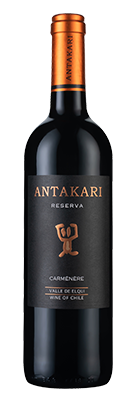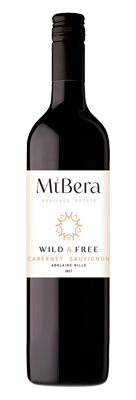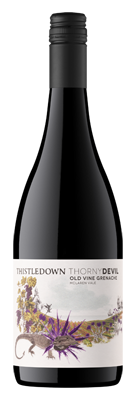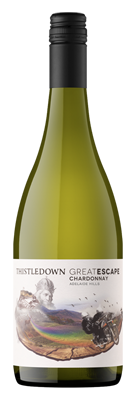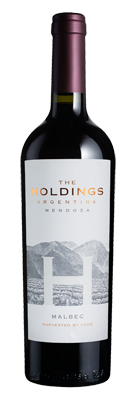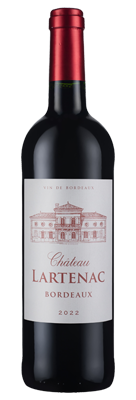Filter by
- Vibrant Shiraz from top estate Moppity oozing cool-climate class.$30.00 RRPfrom $23.99 when you mix 12+
- Velvety Reserve-level Waxed Bat, rich in black fruit and oaky spice from Argentina’s Opi Sadler.$36.00 RRPfrom $26.99 when you mix 12+
- Peppery, silky plum and blackberry fruit red in this high-grown Carmenère from Chile's Elqui Valley.$28.00 RRPfrom $18.99 when you mix 12+
- Crianza is an approachable Rioja style, this one from one of the region's most highly rated bodegas.$35.00 RRPfrom $27.99 when you mix 12+
- Mature, nicely balanced Adelaide Hills Cabernet, named Wild & Free for its biodynamic background.$35.00 RRPfrom $27.99 when you mix 12+
- $36.00 RRPfrom $34.50 when you mix 12+
- $32.00 RRPfrom $29.50 when you mix 12+
- 95pt Single Vineyard Grenache of "seductive fruit purity... and elegant complexity" (Wine Orbit).$45.00 RRPfrom $42.99 when you mix 12+
- $25.00 RRPfrom $14.99 when you mix 12+
- $30.00 RRPfrom $27.99 when you mix 12+
- Hentley Farm Mataro: a beast from the Barossa.$24.50 RRPfrom $23.99 when you mix 12+
- Relatively rare Margaret River Malbec from Franklin Tate's high-performing Miles from Nowhere.$21.00 RRPfrom $16.99 when you mix 12+
- Food-friendly 95pt McLaren Vale Grenache from a 5-star winery.$42.00 RRPfrom $42.00 when you mix 12+
- 90pt single vineyard Chardonnay "juicy fruit flavours... fine texture & crisp acidity" (Wine Orbit).$22.00 RRPfrom $22.00 when you mix 12+
- Fresh Adelaide Hills Chardonnay from cricket legend Ricky Ponting and winemaker Ben Riggs.$25.00 RRPfrom $24.99 when you mix 12+
- 92pt 'attractive' Chardonnay from a Hunter producer using select parcels out of Tumbarumba.$50.00 RRPfrom $39.99 when you mix 12+
- $35.00 RRPfrom $29.99 when you mix 12+
- Pure, silky Malbec red – Argentina's great hero grape – from the highly awarded Bodegas Antigal.$28.00 RRPfrom $19.99 when you mix 12+
- A fresh, berry-rich & food-friendly McLaren Vale Grenache with high point scores up to 94pts$29.00 RRPfrom $25.99 when you mix 12+
- $32.00 RRPfrom $23.99 when you mix 12+
- $28.00 RRPfrom $26.99 when you mix 12+
- Gold, 94pt cool climate, flagshipChardonnay – very stylish drop from Jason Brown.$45.00 RRPfrom $38.99 when you mix 12+
- 95pt, 96pt, Gold-medal, Great Value high-altitude Cabernet from Mountadam's High Eden vineyards.$40.00 RRPfrom $32.99 when you mix 12+
- A Trophy-winning, Gold, 94pt classic cool climate Chardonnay bursting with flavour.$48.00 RRPfrom $41.99 when you mix 12+
Wine FAQs
What is vegetarian wine?
Although wine is made from fermented grapes, it isn’t always vegetarian-friendly. Although grapes are the main ingredient in wine, animal-based products are often used during the winemaking process to clarify and stabilise the wine, before it is bottled. However, there are alternative products that can be used for this, allowing for the production of vegetarian-friendly wines.
Why is wine not vegetarian?
Wine isn’t always vegetarian, and that’s down to the ‘fining’ process. This clarifies wine to remove any impurities or suspended solids that can impact its clarity and stability. Winemakers typically use animal-derived products to do this, and that can make a wine not strictly a vegetarian drink.
The substances don’t remain in the wine – they are removed along with the particles they help to clear out. Depending on the type of fining agent use, the resulting wine may not be suitable for vegetarians.
Traditional fining agents can include:
Gelatin – derived from animal bones and connective tissues
Isinglass – made from fish bladders
Egg whites (Albumin) – used particularly in red wines
Casein – a protein derived from milk.
If either of the first two are used, the wine is not vegetarian.
If any of the above are used, the wine is not vegan.
What’s the difference between vegan and vegetarian wines?
Rather than traditional fining agents such as gelatin and isinglass, vegan wines are made using alternative agents.
These can include:
Activated charcoal
Silica gel (a form of silicon dioxide)
Pea protein
Bentonite (a type of clay with strong absorptive properties)
While a vegetarian diet involves eating plant-based foods and avoiding meat and fish products, some vegetarians eat eggs and milk. Wine can be included in a vegetarian diet as long as the fining agents used are also suitable for vegetarians.
As fining agents aren’t classified as ingredients and, therefore, are not listed on a wine’s label, you may wish to choose a wine labelled as vegan to be sure of its suitability.
How do you know if a wine is vegetarian?
Look for a wine labelled as vegetarian or bearing a vegetarian symbol or logo. Occasionally, wineries may even specify the fining agents they’ve used in their winemaking process online.
On our website, you can check the information section of the wine description to see if a wine is vegetarian.
Or you can simply browse the wines on this page.
Do vegetarian wines taste better?
How a wine tastes is influenced by many factors, principally the grape variety used, the soil and climate in which grapes are grown, winemaking techniques and how the wine is aged.
The same is true of vegetarian red wine and white wine.
Traditional animal-derived fining agents and their vegetarian alternatives are used to clarify and stabilise wine – not to impart flavour. They are used in small amounts and are removed from the wine along with the impurities they clarify.
Consequently, the choice of fining agent usually has a minimal impact on the taste of the wine.
Some winemakers choose not to fine or filter their wines at all. These wines might present different flavours compared to conventionally produced wines, but this is related to the overall winemaking philosophy and methods, not specifically whether the wine is vegetarian.
Is vegetarian wine popular in Australia?
Vegetarian wine is becoming more popular in Australia as consumers become more aware of the impact their choices have on their health and the environment. This has led to a rise in demand for vegetarian products, including wine. Some people prefer vegetarian wine due to ethical concerns about the use of animal-derived products in the winemaking process.
Australia’s thriving wine industry has recognised and supported this trend by producing more wines using vegetarian-friendly methods.
How can I pair vegetarian wine with food?
No vegetarian dish would be complete without a delicious vegetarian wine to pair with it.
Pairing vegetarian wines with food follows the same rules as traditional food and wine pairings. Your focus should be on matching the wine’s characteristics with the flavours and textures of the dish. For example, a crisp, zesty Sauvignon Blanc pairs wonderfully with a fresh, crunchy green salad or a tangy goat cheese tart.
A full-bodied Cabernet Sauvignon with robust tannins and dark fruit notes would work well with a rich, hearty dish like mushroom and lentil stew or vegetable lasagne. The wine provides a delicious balance to the earthiness of these dishes.
Finish off your feast with a glass of late-harvest Riesling paired with a slice of apple strudel – the bright acidity and delicate floral notes of a Riesling would beautifully balance the richness of the dessert. Alternatively, try an Aussie Sparkling wine such as The Black Pig Sparkling White or Howard Vineyard Sparkling Pinot Noir Chardonnay with a tropical fruit Pavlova. The effervescence and vibrant fruit flavours can cut through the sweetness of the meringue and fresh fruit.




